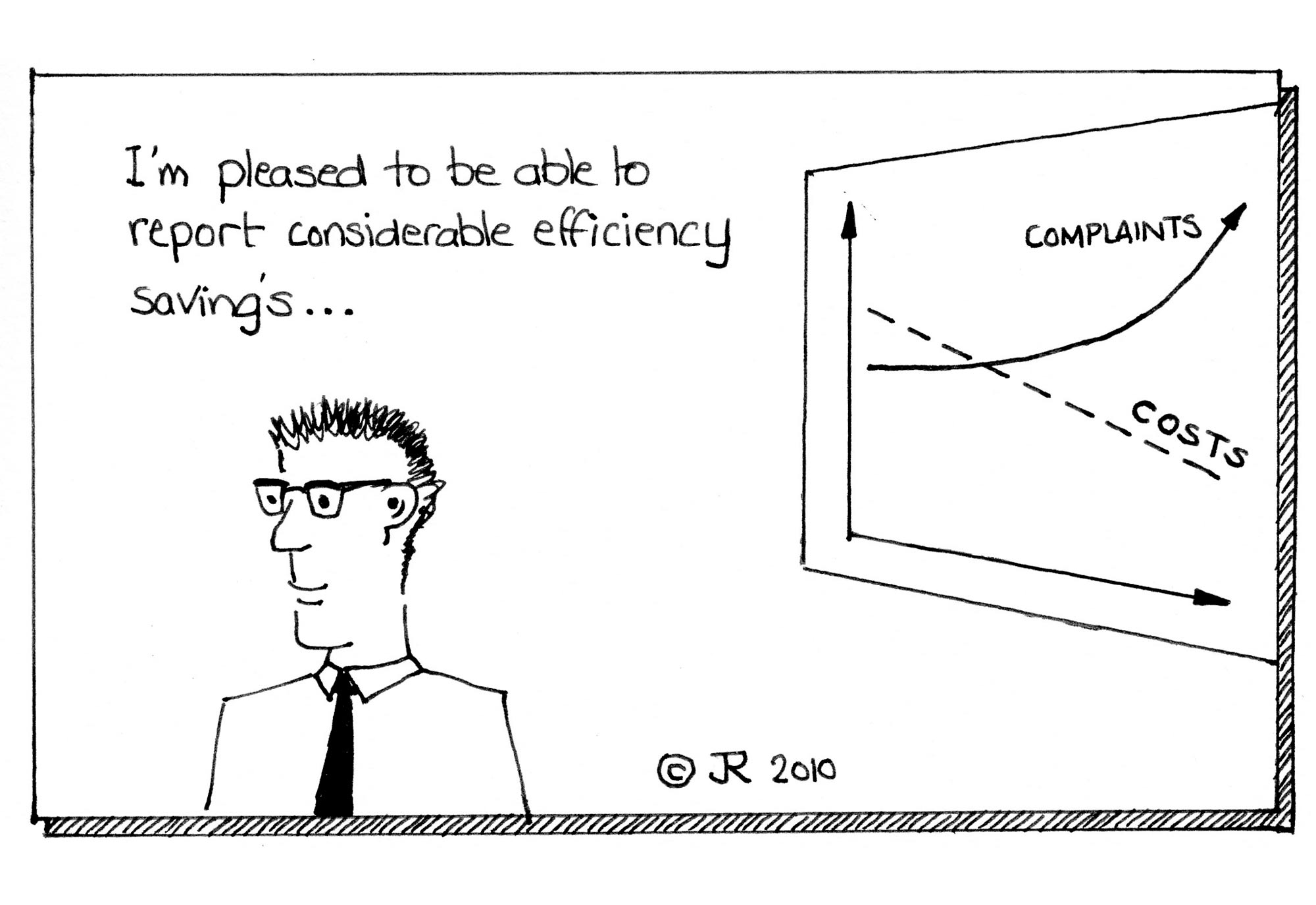
20 Jun How is the drive for efficiency harming our lives?
Know more of our IMPLEMENTATION capabilities.
We hear about the need for efficiency a lot these days…projects being delivered on-time and on-budget, primarily an efficiency measure; companies announcing cost cutting and staff cutting, an efficiency measure; governments talking tough about budgets and about budget cuts, again an efficiency measure.
Where does effectiveness come into play in these decisions? In each of the above scenarios, effectiveness criteria could also be applied but is not. Is that a challenge in communicating value to stakeholders? In many cases, efficiency measures are measures of inputs. Effectiveness measures are more often measures of outputs. Where efficiency (inputs) are targeted for improvement and effectiveness (outputs) are not, then the ramifications should be obvious. We end up delivering less with less.
For instance, in a project, there are many examples of hitting cost and time efficiency measures by scaling back scope or quality. The business then carries the overheads and workarounds to make the flawed solution work. More effort is spent doing what they need to do (less effective) because someone else has needed to be efficient (deliver to budget). The net effectiveness of the organisation drops.
Now I am not proposing that we drop budgets, but the ease of measurement of efficiencies such as budgets, or at least the habit by which we grab a hold of these measures is creating a distortion of what is important….in my view.
How many times do we hear governments announce programs based on budget allocations. Budgets are an input measure not an output, and if it is the only measure available then that program can be subject to “efficiency” gains without a corresponding consideration of impact on effectiveness as a result of the efficiency drive.
It would be refreshing to hear new initiatives based on effectiveness or outputs, such as “improve approval times for 457 visa applications” or “reduce waiting periods on public housing for high risk people”.
This would also provide program and project teams with a more meaningful target that they were aiming to achieve, it may promote improved accountability, and may lead to more effective government. Call me a dreamer, but anything that helps government and corporates alike achieve more with less has to be a good thing.
And the only way of achieving more is to focus on the outputs.













